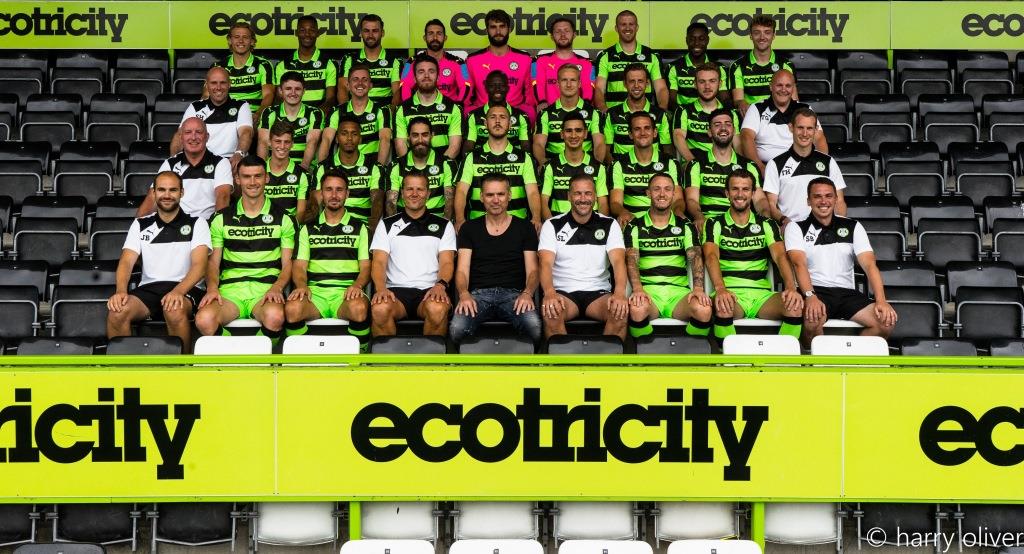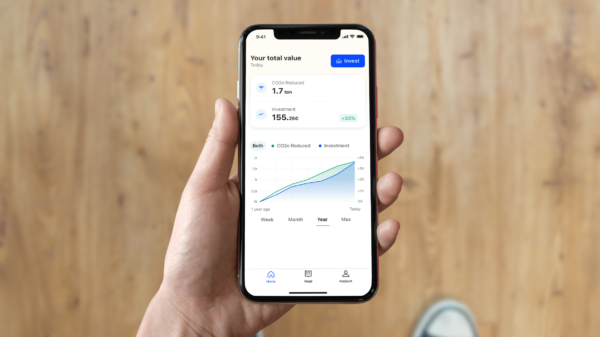How A league two football club is setting a greener example for clubs worldwide
When it comes to sustainability, football can be a dirty business. Thousands of fans contribute to waste emissions each week travelling to and from matches around the country. Lights, display screens and sound systems all consume energy, and so do irrigation systems used to keep the pitches heated, watered, and healthy. This all needs to change in order to protect and restore our environment.
In the 2018/2019 season, Premier League clubs made a staggering combined revenue of £5.15 billion, with an average attendance of 38,182 people, making the league one of the best arenas , in terms of audience and finances, available to promote sustainability. In addition, players themselves are idolised, and often considered to be legends or even gods by their adoring fans. So, there is no doubt about the huge influence that clubs and their players have against their consumers.
We have recently seen how football players can positively impact society, with Marcus Rashford forcing the government to make a U-turn on the decision to not extend free meal programmes to school children. So, if one football player can make such an impact, imagine what one entire club could do.
League Two high-flyers Forest Green Rovers are that club. They make great efforts to set a positive example for clubs all around the world. Their manifesto focuses on the three key environmental policies: energy, transport, and food. They are described as “the world’s greenest football club” by FIFA, and are the first football club to be certified as carbon neutral by the United Nations, and also the first completely vegan team in history.
Energy
- The entire club is powered by 100% green electricity and carbon neutral gas. Most of this energy comes from the club’s own installed solar panels.
- Their football pitch is cut using a GPS-directed electric lawnmower, which is completely solar powered.
- Rainwater is collected from beneath the pitch to use for pitch irrigation, saving gallons of water.
Due to their efforts, they have reduced their electricity emissions by 18%, and their gas usage by 70%. Overall, the club’s environmental policy reduced their carbon footprint by an incredible 53% during the 2019/2020 season, in comparison to the previous season.
Ultimately, football clubs are no different from any other business, and therefore should not be exempt from criticism. Clubs generate more than enough money to switch their energy sources to a more sustainable model. The points mentioned above are not radical changes, but with 211 professional teams worldwide, these changes will go a long way in reducing overall emissions.
Transport
-The club actively promotes sustainable travel to each game, and their stadium even provides EV charge points for electric vehicles.
-The club has compensated for the carbon emitted by fans with an offset scheme incorporated into ticket prices. According to the club owner Dale Vince, this is “an interim step” ensuring “every fan that gets here will have done so in a carbon neutral way”.
Private jets see players back and forth across the world week in and week out.
In 2019, Brazilian international Marquinhos travelled a total of 110,787KM. According to researchers at the University of Manchester, 505 tonnes of carbon was emitted in total by the 20 players who were shortlisted for the Ballon d’Or prize.
Promoting the use of public transport for games, and offering benefits for those travelling in electric vehicles, as seen in the practices of Forest Green Rovers, is one step that clubs can easily take to offset their carbon footprint. Responsibility needs to be taken, and action is urgent.
Food
– According to the clubs website, “FGR became the world’s first vegan football club because of the huge environmental and animal welfare impacts of livestock farming, as well as to improve player performance and give fans healthier, tastier food on match days.”
– The club offers freshly made vegan food to all its players, staff and fans. Their delicious plant-based pies were commended at the British Pie Awards, as well as winning the ‘menu of the year’ award from the Sport and Leisure Catering Magazine.
Switching to a plant-based diet is one of the most significant things that humans can do to reduce their impact on the planet, and we are continuously finding out more and more about the benefits to our health by doing so.
The 2018 World Cup final saw 1.1 billion people tune in. The two biggest partners of this tournament were McDonalds and Coca Cola. The latter was recently named as one of the biggest plastic polluters for the third year running (Break Free From Plastic),with McDonalds responsible for the greenhouse gasses emitted from the cows used across its meat-based menu.
It’s strange that these two companies, whose products can contribute to multiple health problems (diabetes, obesity, heart disease), should be the biggest partners for a global sporting event featuring some of the world’s top athletes.
Imagine the impact if FIFA decided to switch these partnerships with completely vegan companies? It is time for the business to step up and take responsibility for the influence it holds. It seems there could be light at the end of the tunnel following FIFA’s pledge to deliver a fully carbon-neutral World Cup in 2022 as part of their Sustainability Strategy – it will be interesting to see how this plays out.
Over the last few years, more and more of the worlds elite athletes have adopted plant-based/vegan diets. Lionel Messi, Lewis Hamilton, Nate Diaz and Venus Williams, are all proving that plant-based foods can greatly improve the performances of athletes. The evidence is overwhelming and a great indication that clubs should be encouraging more plant-based food throughout, a switch that would see 4000 professional footballers reduce their meat and dairy intake in England alone!
I want to emphasise the fact that Forest Green Rovers are just one, solitary, League Two football club. Imagine the positive impact if each club began to implement similar ground-breaking practices to respect, preserve and improve the health of our planet and the people upon it? Things need to change, and Forest Green Rovers have sure marked the beginning of this revolution.
This article was contributed to Sustainacity by Richard Glover. Read more of his written work at https://medium.com/@ricaus77.










